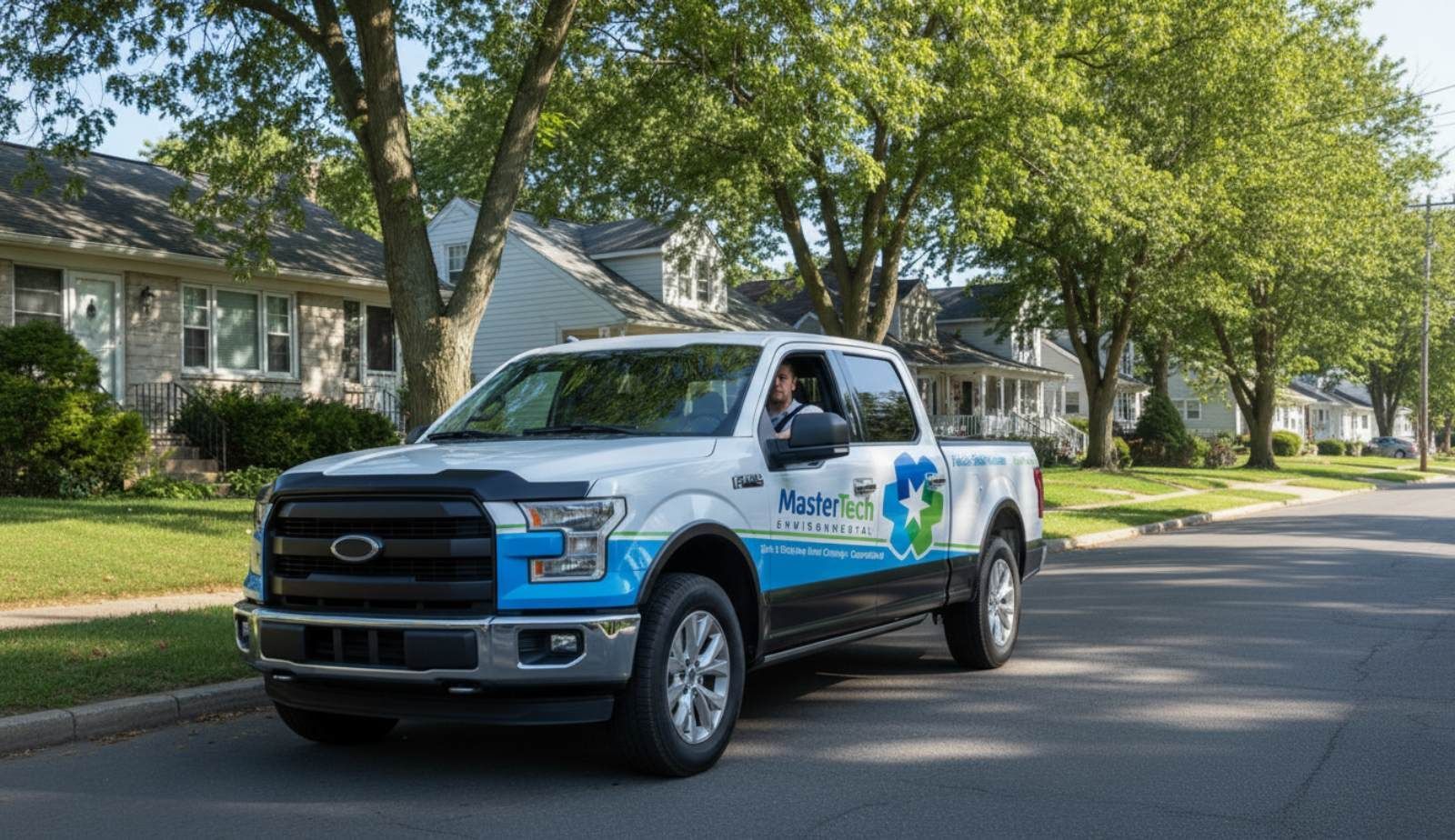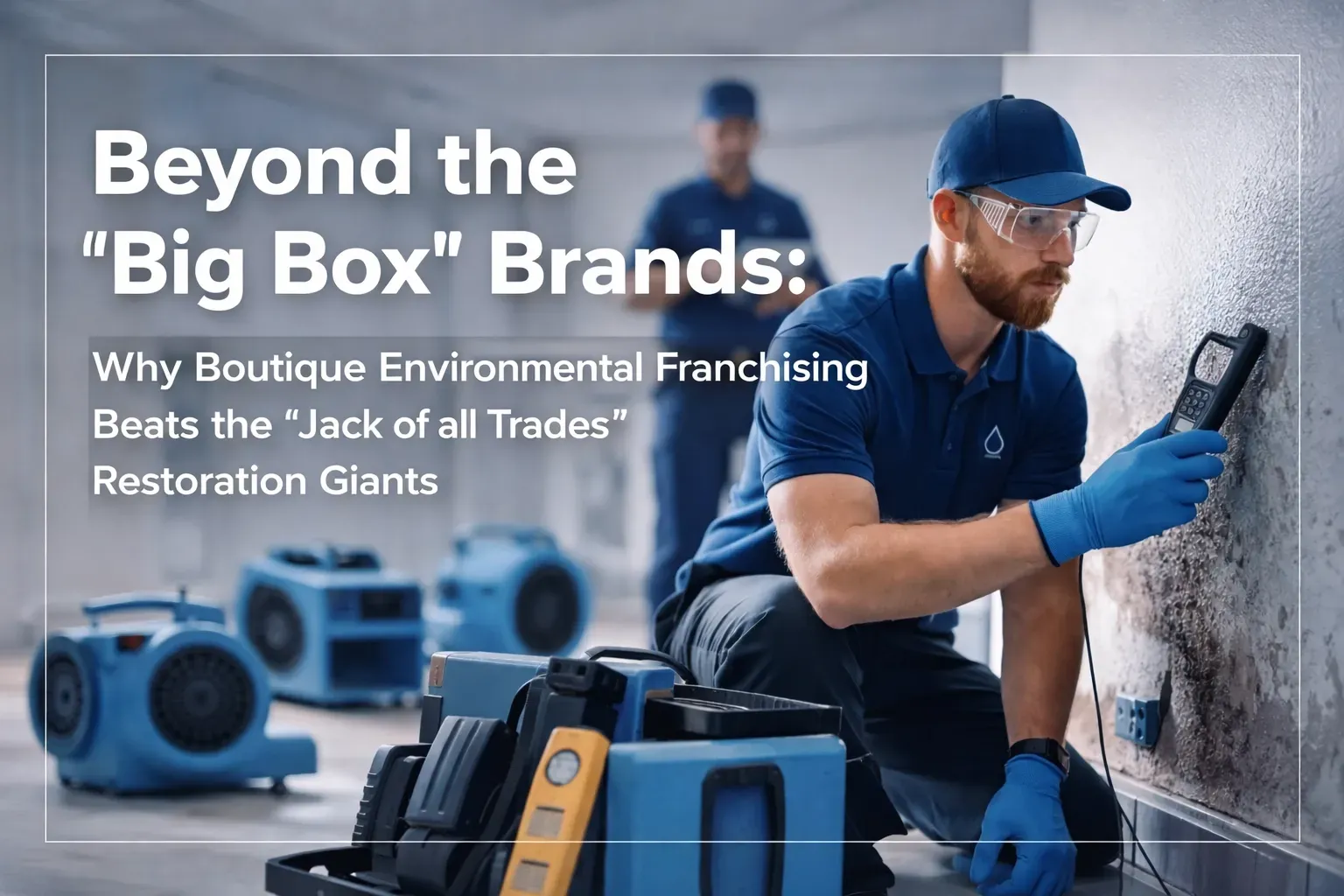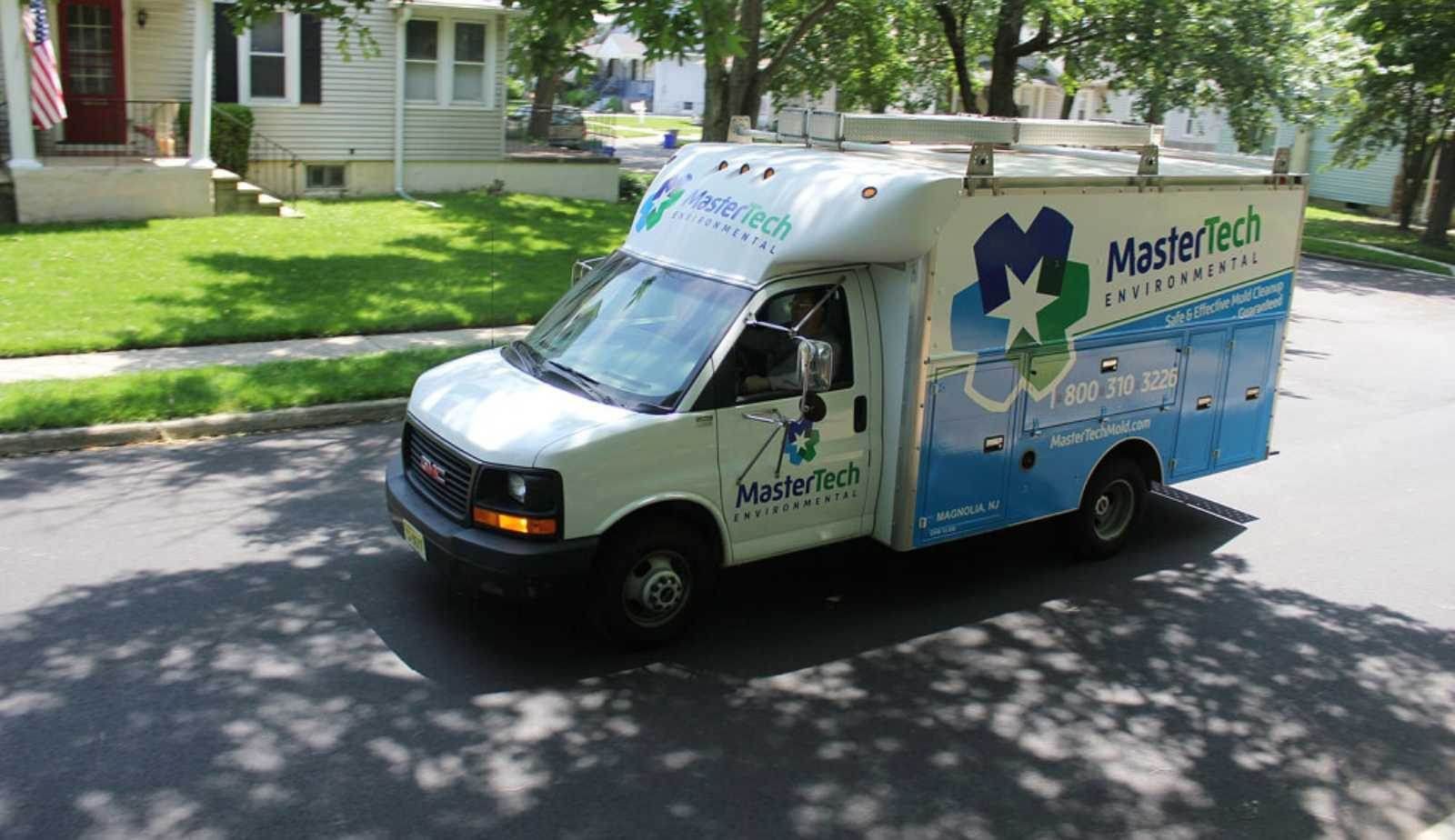
The restoration industry, particularly mold and water damage work, presents an opportunity that thrives even amid economic downturns. This is due to the essential nature of the services provided, which remain in demand regardless of economic conditions. Homeowners and businesses face inevitable challenges from water damage and mold, creating a stable customer base for those in the restoration field.
As natural disasters become more frequent and awareness of environmental issues rises, the significance of these services is amplified. Restoration professionals play a critical role in helping communities recover from property damage. With a resilient business model centered on necessity, the industry continues to attract franchisees looking for sustainable investments.
Mastertech Franchise Systems exemplifies the strength of the restoration sector by offering a range of vital services that cater to this ongoing demand. Their comprehensive approach ensures that franchise owners are equipped to respond effectively to a variety of restoration needs, making it a worthwhile consideration for prospective entrepreneurs.
The Essential Nature of Mold and Water Damage Services
Mold and water damage services play a crucial role in maintaining safe and healthy environments. These services address immediate threats to property integrity and the health of occupants, making their availability indispensable.
Defining Mold Remediation and Water Damage Restoration
Mold remediation refers to the process of identifying, removing, and controlling mold growth within a property. This includes employing specialized techniques and equipment to ensure thorough elimination and prevent recurrence. Water damage restoration involves assessing and repairing damage caused by water infiltration or flooding, which can include structural repairs and moisture management.
Both services require trained professionals who understand the complexities of mold spores and moisture control. The primary objective is to restore the environment to a safe condition, protecting both physical property and the health of its occupants.
Why These Services Cannot Be Deferred
Delaying mold and water damage services can lead to significant and costly issues. Mold thrives in damp environments and can spread rapidly, compromising the structural integrity of buildings. Water exposure can cause extensive damage to walls, floors, and ceilings, which can weaken them over time.
Prompt intervention is essential to minimize these dangers. Insurance claims often require documented restoration efforts to be eligible for coverage. When services are delayed, homeowners risk incurring additional costs, from extensive repairs to potential health issues.
Health Risks of Mold Exposure and Water Damage
Mold exposure poses serious health risks, particularly for vulnerable populations such as children, the elderly, and individuals with preexisting conditions. Health effects can include:
- Allergic reactions: These may manifest as sneezing, coughing, and skin irritation.
- Respiratory issues: Inhalation of mold spores can lead to asthma attacks and other chronic respiratory conditions.
- Neurological problems: In some cases, prolonged exposure can result in cognitive impairments.
Water damage exacerbates these health risks by creating an ideal environment for mold growth. It can also lead to worse conditions such as structural instability, which may pose additional physical dangers. Addressing mold and water damage promptly can significantly reduce these health risks and promote a safer living environment.
Why Mold and Water Damage Work Is Recession-Proof
The demand for mold and water damage restoration services remains strong, irrespective of economic conditions. This resilience is attributed to non-discretionary customer needs, the steady demand during economic downturns, and consistent revenue streams supported by insurance.
Non-Discretionary Customer Needs
Mold and water damage restoration addresses urgent and essential customer needs. Property owners often face unavoidable situations such as burst pipes, flooding, or mold infestations. These issues require immediate action to prevent further damage.
The necessity for a swift response means these services are rarely deferred. Unlike discretionary expenditures, restoration work is crucial for maintaining safety and property value. This creates a reliable customer base, as homeowners must act quickly to minimize loss.
Economic Downturns and Steady Demand
Economic downturns do not halt disasters. Events like natural calamities, plumbing failures, or fire accidents continue to occur regardless of the economic climate. Restoration professionals remain essential to restoring properties following these incidents.
Their services are thus recession-resistant, with consistently high demand despite market fluctuations. For instance, a surge in flooding incidents can lead to increased calls for restoration, demonstrating that the need does not diminish, even in challenging times.
Consistent Insurance-Backed Revenue Streams
A significant factor in the recession-proof nature of mold and water damage restoration is its connection to insurance. Many homeowners carry insurance that covers restoration efforts. Following a disaster, insurance policies often fund the necessary repairs.
This leads to predictable revenue streams for restoration companies. Franchise owners benefit from established relationships with insurance providers, facilitating smoother claim processes. This alignment helps ensure financial stability and reduces the risks commonly associated with sales fluctuations.
In summary, the essential nature of these services, coupled with guaranteed insurance backing, solidifies their standing as reliable business opportunities that withstand economic pressures.
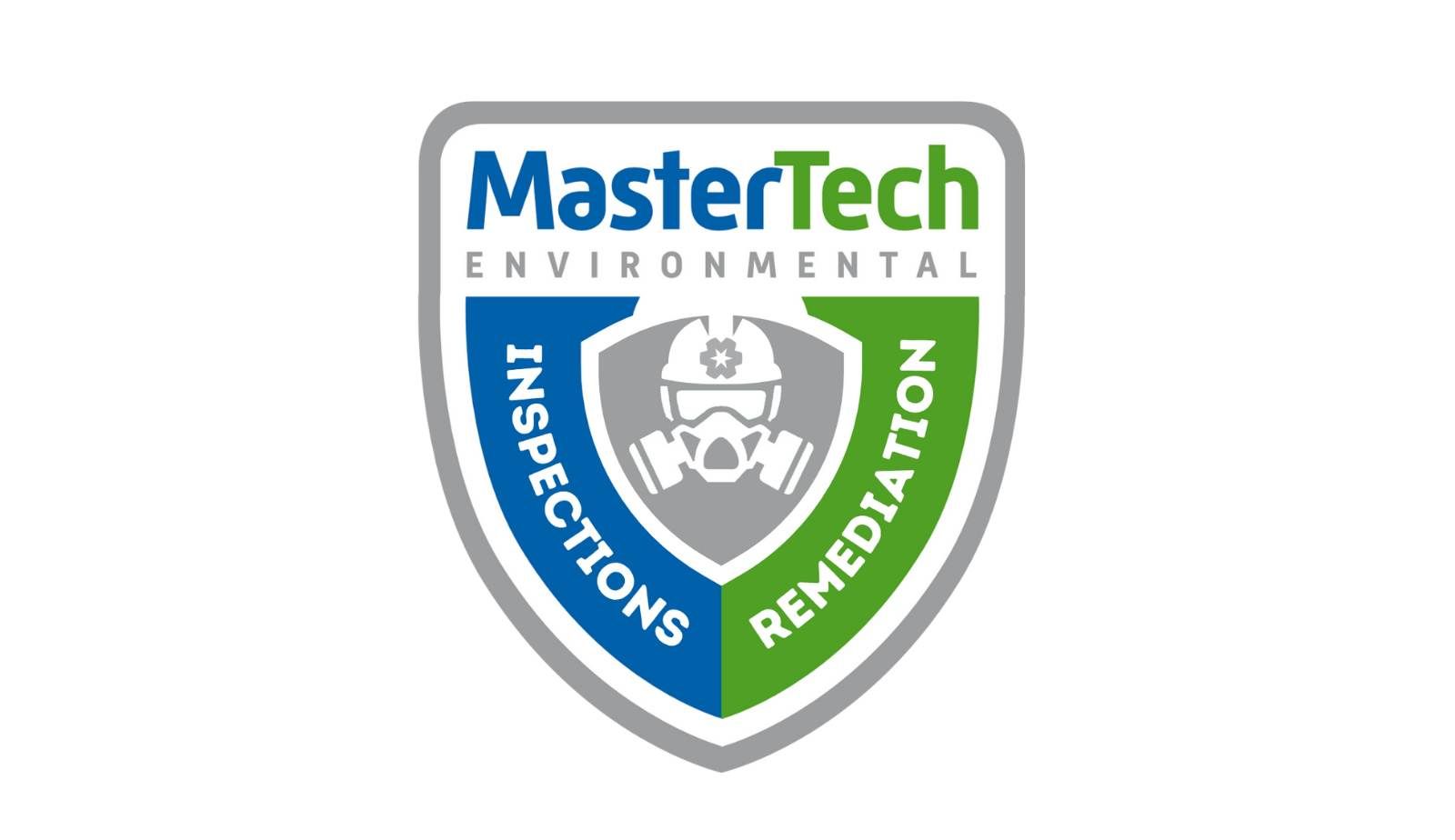
Long-Term Market Growth and Industry Trends
The restoration industry is experiencing sustained growth driven by several key factors. These include aging infrastructure, the impact of natural disasters, and an increasing focus on indoor air quality. Understanding these trends is essential for businesses in mold remediation and water damage management.
Impact of Aging Infrastructure
Aging infrastructure is a critical driver of demand in the restoration industry. Many buildings, particularly in urban areas, are over fifty years old. These structures often suffer from leaks, plumbing failures, and mold growth. The prevalence of such issues necessitates timely restoration services to prevent health hazards and further property damage.
Regular maintenance and timely intervention are crucial. Businesses focusing on mold remediation can position themselves as essential partners for property owners. The need for expertise in handling the complexities of older buildings enhances their role during restoration projects.
Natural Disasters and Climate Change
Natural disasters are becoming increasingly frequent and severe due to climate change. Events such as hurricanes, floods, and wildfires lead to significant water damage and mold outbreaks. This unpredictability creates a burgeoning market for restoration services.
In particular, areas prone to extreme weather events require ongoing preparedness and rapid response capabilities. Businesses that specialize in mold and water damage restoration are essential for communities recovering from such disasters. Their ability to respond quickly can mitigate health risks and economic losses.
Growing Awareness of Indoor Air Quality
There is a growing awareness regarding indoor air quality (IAQ) among consumers. Poor IAQ can lead to health issues, particularly in buildings with mold and moisture problems. As more people recognize the significance of a healthy living environment, demand for remediation services rises.
Educational initiatives about IAQ are increasingly influencing consumer decisions. Property owners are seeking certified mold remediation providers to address mold issues proactively. This trend not only highlights the restoration industry's relevance but also promotes a healthier living environment.
Investing in industry expertise and consumer education will benefit businesses in this essential field.
Diverse Restoration Services and Their Ongoing Demand
The restoration industry provides a range of services that address various types of damage to properties, driven by an ongoing need for reliable solutions in challenging situations. Many companies specialize in multiple areas to ensure they meet the diverse requirements of clients.
Overview of Comprehensive Restoration Solutions
Restoration services encompass water damage, mold remediation, smoke damage, and more. Each service targets specific issues that arise from environmental factors or accidents.
Key Services:
- Water Damage Restoration: Includes water extraction and drying processes.
- Mold Remediation: Focuses on identifying and eliminating mold growth to prevent health risks.
- Fire and Smoke Damage Restoration: Involves cleaning soot and repairing smoke damage.
These services are essential due to the increasing frequency of climate-related disasters and aging infrastructure, ensuring consistent demand.
Smoke and Fire Damage Services
Smoke and fire damage restoration is critical following any incident involving fire. Restoration technicians utilize specialized equipment and techniques to clean and restore affected areas.
Key steps in this process include:
- Assessment: Evaluating the extent of damage.
- Mitigation: Preventing further damage through tarps or boarding up.
- Cleaning: Removing smoke residue and odors using advanced cleaning products and technology.
With over 350,000 house fires reported annually in the U.S., the need for these specialized services remains high.
Biohazard and Specialty Cleanups
Biohazard cleanup services address hazardous situations that involve biological materials. This can range from crime scenes to the aftermath of serious health incidents.
Technicians trained in handling biohazards follow strict safety protocols. Their responsibilities include:
- Containment: Isolating the affected area to prevent contamination.
- Decontamination: Using appropriate disinfectants and personal protective equipment.
- Proper Disposal: Ensuring hazardous materials are disposed of per local regulations.
In a market with growing awareness of health and safety, these services are increasingly essential, reinforcing the ongoing need for specialized restoration companies.
Advantages of Restoration Franchise Ownership
Owning a restoration franchise offers numerous benefits. Franchise owners can leverage established business models, gain brand recognition, and access comprehensive support systems. These factors contribute to a sustainable and profitable business environment.
Proven Business Models
Restoration franchises benefit from tried-and-true business models. These frameworks are designed to minimize risks associated with starting a new enterprise. Established operational procedures streamline various aspects, including service delivery and customer management.
Franchise owners can focus on execution rather than creating a unique business strategy. The tested framework allows for quicker adaptation to market demands. Additionally, owners can draw on the experiences of existing franchisees, enhancing their chances of success.
Brand Recognition and Local Impact
Franchise ownership provides immediate brand recognition. Established companies often come with a loyal customer base, which can facilitate customer acquisition. This recognition aids in competition against independent operators.
Franchise owners also have the opportunity to make a significant local impact. By offering essential services like mold and water damage restoration, they contribute positively to community recovery efforts. Their involvement fosters trust and strengthens community ties, enhancing local reputation.
Support, Training, and Resources
Access to ongoing support is a critical advantage of franchising. Restoration franchises typically offer comprehensive training programs. These programs cover not only technical skills but also business management and customer service.
Owners receive continual support, including marketing and operational assistance. Centralized resources help streamline operational efficiency. Owners can utilize proprietary software and tools designed for the restoration industry, which enhances productivity and service quality.
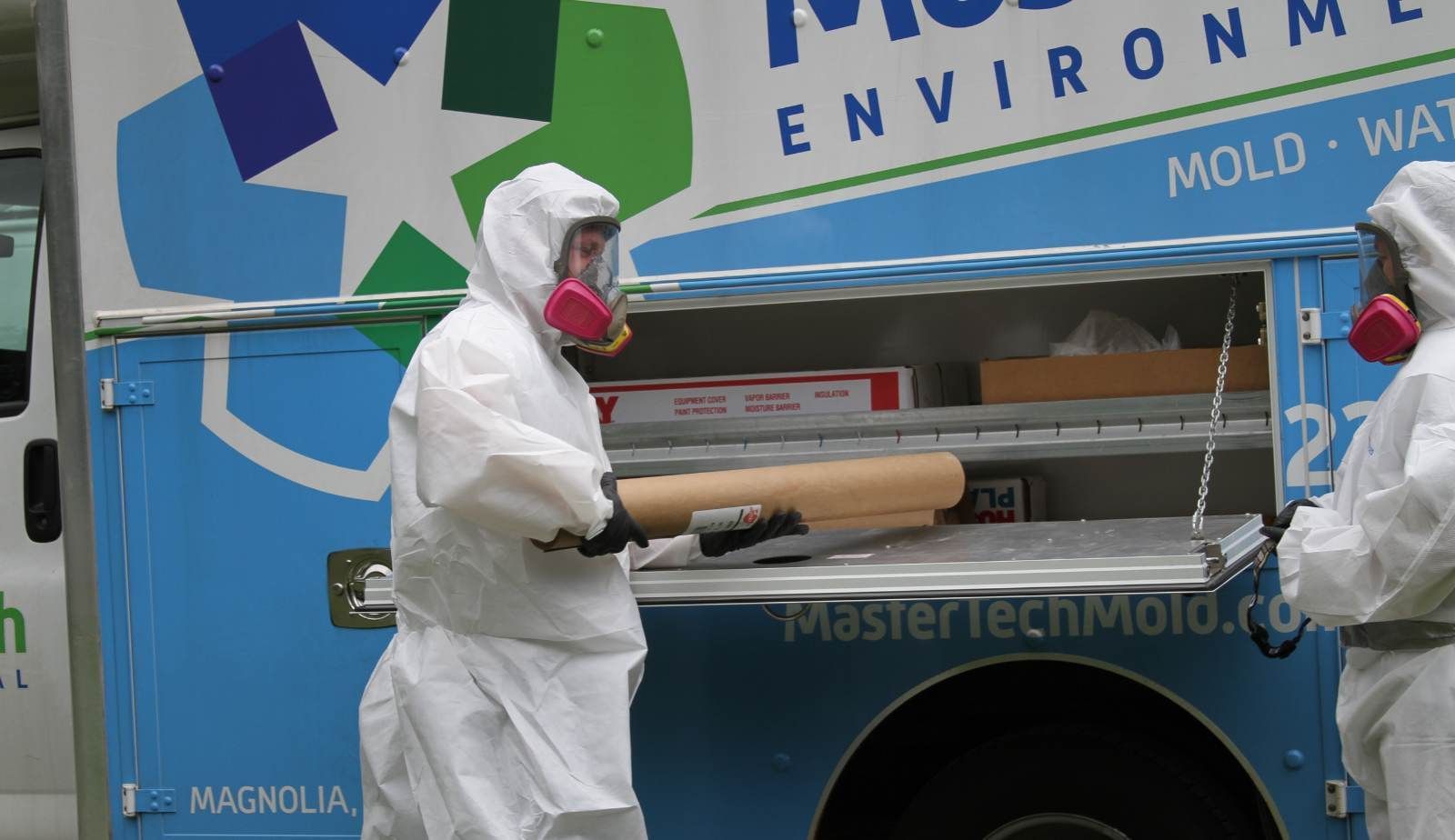
Year-Round Revenue and Recurring Income Opportunities
The mold and water damage restoration industry stands out due to its persistent demand and stable income potential. This section highlights the minimal seasonal fluctuations in service requests, the value of recurring business from ongoing issues, and the role of insurance partnerships in generating leads and consistent revenue.
Minimal Seasonality in Service Demand
Restoration services related to mold and water damage are inherently necessary regardless of the season.
Key Drivers:
- Humidity and Moisture: High humidity levels in summer lead to increased mold growth.
- Leak-Related Issues: Winter can cause pipe bursts, resulting in water damage.
These factors create a steady flow of clients year-round. Restoration businesses benefit from having a diversified service offering aimed at addressing both immediate and ongoing issues. This consistency helps stabilize revenue streams.
Recurring Business from Persistent Issues
Mold and water damage often stem from underlying problems that require ongoing attention. Homeowners frequently face recurring issues due to factors such as:
- Moisture Problems: Continuous humidity can lead to repeated mold growth.
- Building Maintenance Needs: Older structures may require frequent inspections and treatments.
This reality allows service providers to secure contracts for ongoing maintenance and inspections. These recurring contracts offer reliability in income, positioning the business as an essential service provider.
Insurance Partnerships and Lead Generation
Collaboration with insurance companies plays a crucial role in securing job leads. Many restoration service providers build strong relationships with:
- Insurance Adjusters: They help generate referrals for covered claims.
- Local Agencies: Partnerships can facilitate access to a broader customer base.
When clients file insurance claims due to water damage or mold remediation, restoration companies often become the go-to choice. This leads to consistent work and helps stabilize revenue through expected insurance payouts, creating a dependable income stream throughout the year.
Mastertech Franchise Systems: Industry Insights and Unique Value
Mastertech Franchise Systems stands out in the mold remediation and water damage restoration sectors by providing robust support to franchise owners. This franchise opportunity emphasizes essential services that remain in continuous demand, allowing franchisees to thrive even in challenging economic climates.
Mastertech's Comprehensive Franchise Support
Mastertech offers extensive training programs tailored for new and experienced franchise owners. These programs include both in-person and on-demand training focused on operations, marketing, and sales.
Franchisees also receive ongoing support to enhance their business strategies. Mastertech provides access to proven operational systems that facilitate quality service delivery. This comprehensive backing equips owners to effectively manage day-to-day operations while maximizing profit potential in an industry characterized by consistent demand.
Business Growth Strategies in Restoration
To help franchisees scale their operations effectively, Mastertech implements several growth strategies. The focus on high-demand services such as mold remediation and water damage cleanup establishes a strong market presence.
Franchise owners benefit from multiple revenue streams, including private-pay and insurance-billed services. This dual approach not only diversifies income but also ensures consistent cash flow. Additionally, the franchise promotes recurring revenue opportunities through maintenance contracts, helping owners establish long-term client relationships, which are crucial for sustained growth.
Leadership and Ownership Success Stories
Mastertech Franchise Systems has a strong track record of successful franchise ownership. Franchisees like Wendell Poindexter and Austin Bischoff have transformed local markets in Virginia and South Carolina, respectively.
Their experiences reflect the effectiveness of Mastertech’s support systems and growth strategies. Training and mentorship provided by Mastertech lead to tangible success, showcasing how dedicated owners can shape their business journeys. These success stories serve as tangible proof of the franchise's commitment to empowering franchisees, further enhancing its reputation in the restoration industry.
Opportunities and Future Outlook for Entrepreneurs
The restoration industry presents unique opportunities for entrepreneurs, particularly in the franchise sector. As businesses and homeowners prioritize essential services such as mold and water damage remediation, those entering this field stand to benefit from a stable market demand.
Evaluating Franchise Options in Essential Services
Franchise opportunities in essential services, like restoration, provide a pathway for entrepreneurs seeking to minimize risk while maximizing potential returns. Established franchises, such as Mastertech Franchise Systems, offer brand recognition, a supportive network, and proven business models.
Key considerations include:
- Initial Investment Costs: Understanding the upfront costs, including franchise fees and equipment.
- Training and Support: Evaluating the training programs offered to ensure readiness for complex restoration tasks.
- Market Potential: Researching local demand for restoration services to identify optimal locations.
Franchising in this sector allows for a structured approach to running a business, leveraging established practices that enhance success.
Navigating Industry Evolution and Growth
The restoration industry is experiencing significant growth, driven by increasing awareness of mold and water damage issues. Entrepreneurs must stay informed about trends and technologies that enhance restoration processes, such as green solutions and advanced drying techniques.
Detailed market analysis highlights:
- Technological Advancements: Investment in equipment that improves efficiency and effectiveness is crucial.
- Regulatory Changes: Adapting to new health and safety regulations to remain compliant and competitive.
- Consumer Preferences: Shifts toward eco-friendly practices and sustainable materials can attract a broader customer base.
Embracing innovation and being responsive to market changes positions restoration businesses for long-term survival and growth.
Long-Term Security in Restoration Business
The restoration business is inherently recession-resistant, making it a viable long-term venture. Services related to mold and water damage are often unavoidable for homeowners and businesses, ensuring consistent demand even in economic downturns.
Key attributes of this resilience include:
- Essential Nature of Services: Mold and water damage remediation is often required urgently, making it a necessity rather than a luxury.
- Repeat Business Potential: Building relationships with customers can lead to repeat jobs and referrals, sustaining revenue streams.
Investing in a restoration franchise can provide both financial stability and a means to contribute positively to community health and safety by addressing critical home and business maintenance needs.
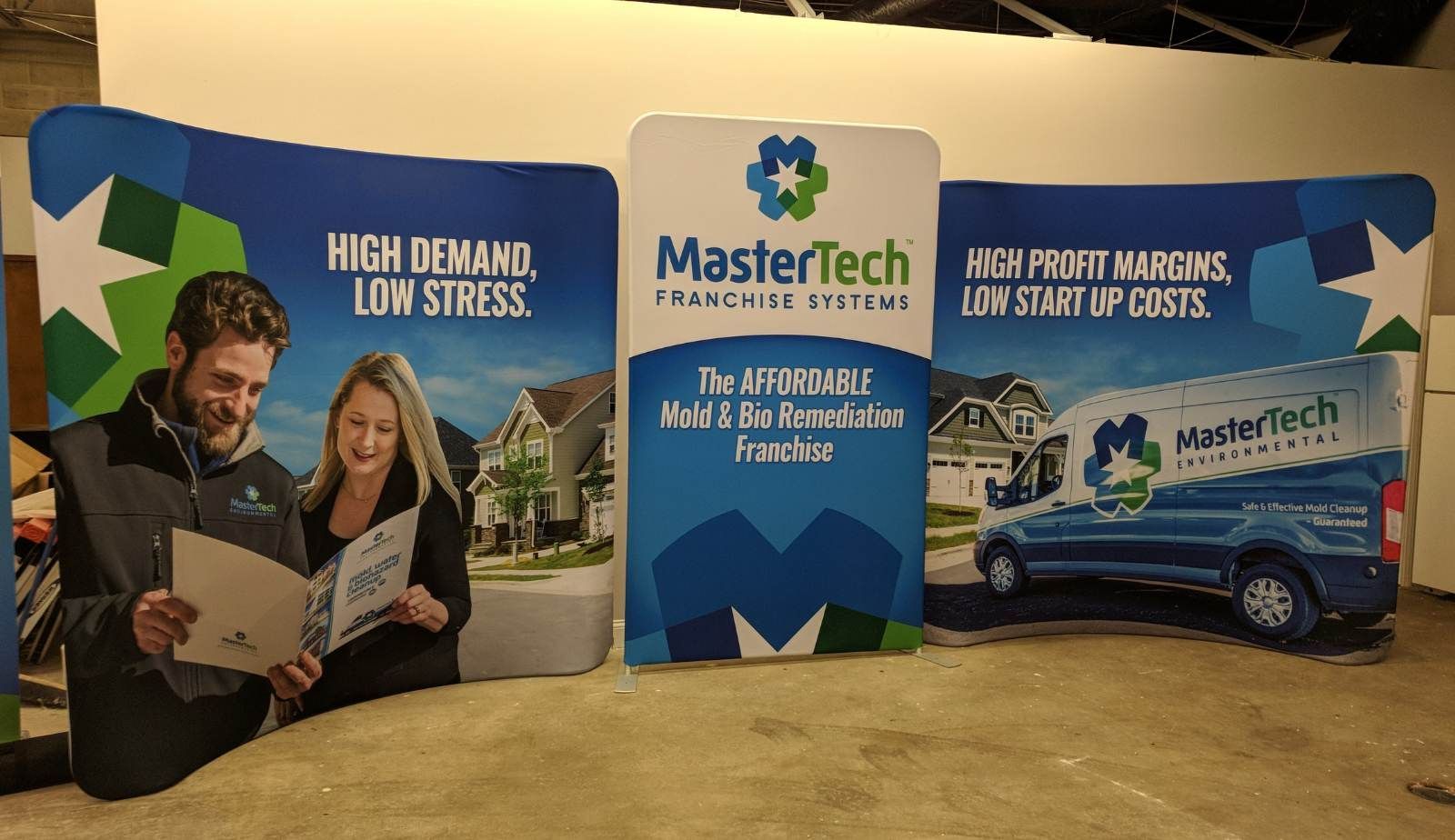
Frequently Asked Questions
This section addresses common inquiries about the mold and water damage restoration industry. It covers the factors influencing demand, the effects of economic conditions on the industry, necessary qualifications, profitability potential, customer acquisition strategies, and health protocols in practice.
What are the primary factors driving the demand for mold and water damage services?
Several factors enhance the demand for mold and water damage services. The occurrence of natural disasters leads to increased property damage. Aging infrastructure also contributes, as older buildings are more susceptible to water damage and mold growth. Additionally, rising awareness of health risks associated with mold emphasizes the need for professional remediation.
How do economic downturns affect the mold remediation and water damage industry?
Economic downturns have a limited impact on the mold remediation and water damage industry. Demand for these services remains steady because property damage can happen regardless of economic conditions. Property owners must address water damage and mold issues promptly to prevent further expenses, making these services essential.
What qualifications are needed to start a mold and water damage restoration business?
Starting a mold and water damage restoration business requires specific qualifications. Individuals should have training in mold remediation and restoration techniques. Certifications from recognized organizations can enhance credibility. Knowledge of relevant local regulations and safety standards is also essential for compliance and effective operation.
Can mold and water damage restoration be a long-term profitable business?
Mold and water damage restoration can be a long-term profitable business. The consistent demand for these services often leads to reliable income streams. Many franchise owners report breaking even within 18-24 months. Profit margins can vary but generally fall between 20% to 40%, depending on local market conditions.
What is the typical customer acquisition strategy for businesses specializing in mold and water damage?
Customer acquisition strategies vary for mold and water damage restoration businesses. Many rely on local marketing efforts, including search engine optimization (SEO) and online advertising. Building relationships with insurance companies can also generate referrals. Community involvement and networking play significant roles in attracting clients.
What are the common health and safety protocols followed during mold remediation?
Health and safety protocols are critical during mold remediation work. Technicians typically wear personal protective equipment (PPE) to prevent exposure to mold spores. Containment measures are employed to isolate affected areas, minimizing airborne contaminants. Proper ventilation and air filtration systems are also utilized to enhance safety during the remediation process.
Get in Touch
Contact Us
Don't be a stranger!
30 Broad St, Unit 7
Denville, New Jersey 07834

